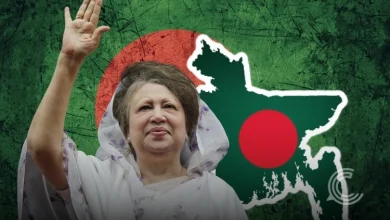Tensions Explode as Afghanistan Vows Payback for Pakistan Airstrikes

Key Highlights
- Kabul accuses Pakistan of cross-border strikes that killed 10 civilians, mostly children.
- Afghanistan warns of “appropriate retaliation,” escalating an already volatile border standoff.
- Pakistan links recent suicide attacks to Afghan-based militants, tightening the diplomatic freeze.
A familiar crisis flared back to life on Tuesday as Afghanistan’s Taliban administration accused Pakistan of launching a series of cross-border strikes that wiped out an entire family in eastern Khost province.
Afghan officials say drones and aircraft struck a residential compound overnight, killing nine children and a woman, a tragedy that has further inflamed public anger in border communities.
A Cross-Border Flashpoint Reignites
Journalists who reached Jige Mughalgai, the village at the centre of the incident, described families pulling shattered belongings from heaps of debris as fresh graves were dug side-by-side. Residents said they were stunned that a civilian home became the target of an attack. “Ordinary people are dying,” one man said. “We have nothing to do with anyone’s war,” AFP reported.
Taliban Signals a Harder Line
Kabul’s leadership responded with a statement considerably sharper than its usual diplomatic tone. Taliban spokesman Zabihullah Mujahid condemned the strikes as a “clear violation of sovereignty” and said Afghanistan would exercise its “legitimate right” to defend its airspace and people. While Mujahid did not outline what form that response might take, his wording suggested Kabul believes the incident cannot go unanswered.
Officials in Khost stated that the strikes were not confined to a single location. Areas in neighbouring Kunar and Paktika provinces were also hit, with at least four people injured. The Taliban has framed the attacks as part of a pattern of incursions it says Pakistan has carried out with increasing frequency since early autumn.
The Peshawar Attack Adds Fuel to the Fire
The latest escalation comes just a day after a suicide bomber targeted Pakistan’s Federal Constabulary headquarters in Peshawar, killing three officers and wounding more than a dozen others. A Pakistani state broadcaster claimed the attackers were Afghan nationals, though no militant group has taken responsibility.
However, Afghanistan rejects these accusations, saying Pakistan routinely blames Kabul for domestic security failures while ignoring groups it hosts that oppose the Taliban government.
A Ceasefire That Never Truly Settled
Cross-border tensions have been simmering since October, when deadly clashes left about 70 people dead on both sides of the frontier. A ceasefire brokered by Qatar and Turkey briefly halted the violence, yet multiple rounds of talks in Doha and Istanbul produced no enduring compromise.
Kabul counters that Islamabad has long used militant groups as strategic assets and now refuses to acknowledge its own role in destabilising the region. Both sides have become increasingly hostile in their statements recently, and Tuesday’s events may have made the situation the most tense it’s been since 2021.
An Economic Freeze Deepens the Standoff
Beyond the security crisis, the closed border is exacting an increasingly heavy economic toll that grows heavier each week. Trade between the two countries has been paralysed for more than six weeks, leaving thousands of trucks and containers stranded in limbo. The Pakistan-Afghanistan Joint Chamber of Commerce and Industry estimates each container is accumulating $150–$200 per day in costs, an unsustainable burden for traders who rely on the corridor for their livelihoods.
Business groups warn that the economic freeze is entrenching frustration on both sides and reducing incentives for diplomatic restraint.
A Dangerous Inflection Point
With Kabul vowing retaliation and Islamabad signalling that it may tighten its military posture. Analysts warn that the two neighbours are entering a period where miscalculation could quickly widen the conflict. Both sides accuse the other of harbouring militants. Both insist their sovereignty is being violated. And both face domestic pressure to project strength.
For now, the frontier remains quiet but tense, and one aerial strike, one bombing, or one political misstep could tip the region into a crisis neither side can easily contain.



